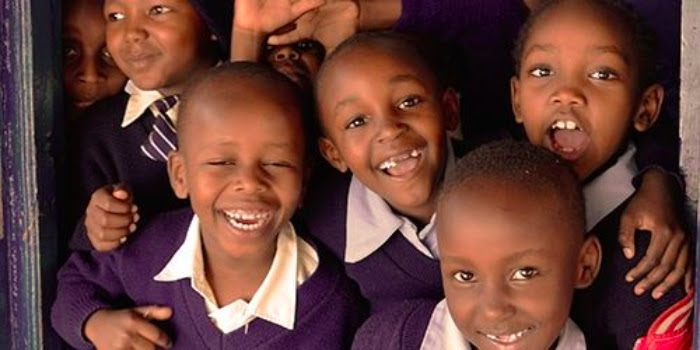It’s ACTober here at Canopy Life, and one of the ACTions we are celebrating is Child Sponsorship. When our first class begins in January, the fifteen children attending the school will have 60 Sponsors cheering them on! This group will be comprised of families with young kids, empty nesters, singles, high school students, classmates, and small groups of friends, from all over the United States, Canada, and beyond.
We have seen time and time again the power of multiple positive mentors in the life of a child, and that is why Canopy Life goes beyond a simple one-to-one sponsorship program. In order to make the greatest possible impact in the life of a child, each student has five sponsors. This ensures they are provided with imagination-enabling programs, life-changing discipleship, and ongoing concern for their 24/7 care, education, food, clothing, and medical needs.
Child sponsorship is not a new idea – organizations like Compassion, World Vision, and Brightpoint have been doing it for years. In addition to providing for a child’s basic needs, child sponsorship has the power to go beyond the physical, immediate needs. At Canopy Life, we believe our Child Sponsorship program will be a hope-producing ACTion, providing inspirational and practical preparation for each student’s current development and future leadership.
Child Sponsorship inspires confidence.
Over the past decade, Bruce Wydick and a team from the University of San Francisco have been doing widespread research on the effect sponsorship has on the life of a child. As part of the research, Wydick met with Wess Stafford, former President and CEO of Compassion International. During the interview, Stafford shared the following story about interviewing kids for his dissertation:
I asked a bunch of kids what they wanted to be when they grew up. Some were Compassion kids, some were unsponsored. There was a little bit of a difference between the two groups. But then I asked them later what they realistically expected to be when they grew up. Here, there was a big difference between the sponsored kids and the other kids. You see, poverty causes children to have very low self-esteem, low aspirations. The big difference that sponsorship makes is that it expands children’s views about their own possibilities. Many of these children don’t think they are capable of much. We help them realize that they are each given special gifts from God to benefit their communities, and we try to help them develop aspirations for their future.
Wydick goes on to explain the positive impact sponsorship has on young children. Sponsorship fosters an ongoing relationship between the child and an invested adult. It is one thing to tell a child, “I believe in you!” but another to build a rapport over time that nurtures the child’s self-worth, aspirations, and dreams.
Child Sponsorship connects students to a global community.
One of the things we value most highly about child sponsorship is the opportunity to connect our students to their global community. We recognize that the leaders of tomorrow will have access to the world and will need to know how to interact cross-culturally through digital outlets and social media.
Through child sponsorship, Canopy Life students will connect with not just one, but five sponsors cheering them on to continually grow into the person God created them to be. Multiplying the number of sponsors for each child multiplies the number of loving individuals invested in our students’ futures.
Child Sponsorship grows leaders.
As a learning community focused on education and preparing students for big futures, we found the long-term outcome of Wydick’s study especially powerful. When conducting their research, his team contrasted the vocational outcomes of sponsored children against their older siblings and others in the community who were too old for sponsorship at the onset of the program. What they discovered speaks volumes about the impact sponsorship has on a child’s future:
We found that child sponsorship means that when the child grows up, he is 14–18 percent more likely to obtain a salaried job, and 35 percent more likely to obtain a white-collar job. Many of the Compassion-sponsored children become teachers as adults instead of remaining jobless or working in menial agricultural labor. We found some evidence that they are more likely to grow up to be both community leaders and church leaders.
With your support, we help students dream with their Creator and become who God has called them to be. Sponsorship is not only key to funding the transformative programs at Canopy Life but also to building each student into a future leader through intentional mentor relationships. This month, will you ACT and become a Child Sponsor? You can find more information on our website: canopylife.org/sponsorship
If you would like to read more about Wydick and his team’s research on Child Sponsorship, check out his article Want to Change the World? Sponsor a Child in Christianity Today.
